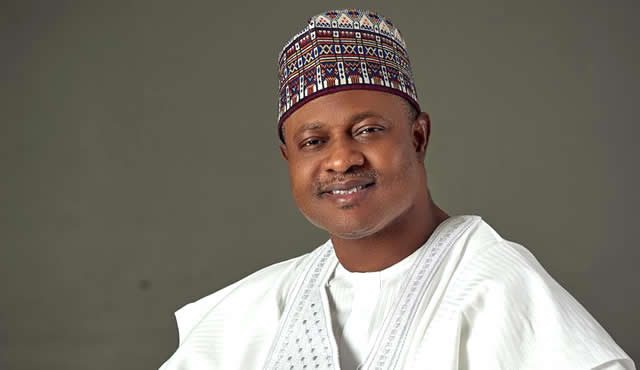Democracy & Governance
Let’s Talk About Uba Sani’s Loyalty to the People of Kaduna -By Hassan Aliyu
The funny thing about El-Rufai’s roforofo fight with Governor Uba Sani is that he claims to hate godfatherism. In 2019, he even went to Lagos and boldly told Lagosians that he would give them a template to defeat political godfathers. Yet today, he aspires to be the very godfather of Kaduna. Ironically, his career as a political godfather collapsed before it even began.

Every Nigerian politician dreams of having a successor who will remain loyal to him or her, even at the expense of the people who gave them the mandate. That is why, in the build-up to the last Kogi governorship election, former Governor Yahaya Bello, who is still seen as the governor by proxy, openly declared that if he failed to produce a successor who would be at his beck and call, then he had failed as a leader. Luckily for him, he got one in Usman Ododo. Ododo went as far as telling his appointees that Bello’s words, not his, were final. Which means if he instructed them to walk, but Bello said they should run, then they must obey Bello. Why won’t the White Lion sleep with both eyes closed despite the wahala from the Economic and Financial Crimes Commission (EFCC)?
But not all former governors are as lucky as Yahaya Bello. Take Nasir El-Rufai of Kaduna State, for instance. He thought he had secured his own “Ododo” in Uba Sani. But Uba Sani turned out differently. For him, loyalty is first and foremost to the people of Kaduna State, whom he swore on the Qur’an to serve faithfully. The one who feels betrayed today is none other than his predecessor, who expected to have him as a political puppet. Now, all hell has broken loose. Things have fallen apart, and the falcon can no longer hear the falconer.
Recently, a video surfaced showing Governor Uba Sani showering El-Rufai with praises, acknowledging the role he played in his life. Yet rather than taking it for what it was, a gesture of gratitude, some have twisted it to paint Uba Sani as a betrayer. To me, this is simply a case of the betrayer being betrayed. After all, El-Rufai himself has a history of turning his back on those who helped him, Atiku Abubakar being one of the most prominent examples. So why should it be strange if the chicken has finally come home to roost?
And if the definition of betrayal now means standing with the people who elected you, asking hard questions about how resources meant for their welfare were spent, then so be it. After all, is democracy not supposed to be government of the people, by the people, and for the people?
The funny thing about El-Rufai’s roforofo fight with Governor Uba Sani is that he claims to hate godfatherism. In 2019, he even went to Lagos and boldly told Lagosians that he would give them a template to defeat political godfathers. Yet today, he aspires to be the very godfather of Kaduna. Ironically, his career as a political godfather collapsed before it even began.
El-Rufai has always been a man who speaks from both sides of his mouth. This is the same man who, as governor, admitted that he paid bandits to end incessant killings, only to later turn around and declare that what he would never do is pay bandits, feed them, or clothe them in the name of non-kinetic measures. Thank God for the retentive memory of the internet, it never forgets.
El-Rufai and his minions need to know that true leadership is not about blind loyalty to an individual, no matter how influential. It is about loyalty to the oath of office, to the constitution, and above all, to the people. Uba Sani understands that the legitimacy of any government is derived from the trust of its citizens, not the approval of a political godfather. In choosing the people over the dictates of his predecessor, he is reminding us that political office is not a personal estate to be inherited or controlled by proxy.
Kaduna State, like many others across the federation, is faced with enormous challenges, ranging from insecurity to poverty, unemployment, and infrastructural decay. These problems require bold leadership and accountability, not a continuation of old practices that placed personal loyalties above public good. If Governor Uba Sani insists on interrogating how the resources of the state were managed in the past, then he is fulfilling the most sacred duty of governance: stewardship.
It is also important to emphasize that gratitude and accountability are not mutually exclusive. A leader can appreciate those who helped him rise, but appreciation should not translate into subservience. El-Rufai’s expectation of unquestioned loyalty is not only undemocratic but also dangerous. Democracy thrives on transparency, checks and balances, and the courage to say no when the people’s interest is threatened.
In the final analysis, history will judge leaders not by how faithfully they served their predecessors, but by how faithfully they served their people. If Uba Sani succeeds in repositioning Kaduna State on the path of equity, justice, and development, then he would have proven that true loyalty is not to individuals, but to the people whose mandate he carries.
Kaduna deserves a governor who listens, questions, and acts in the best interest of its citizens. If that makes Uba Sani a “betrayer” in the eyes of some, then perhaps betrayal has never been more noble.
Hassan Aliyu writes from Kaduna










